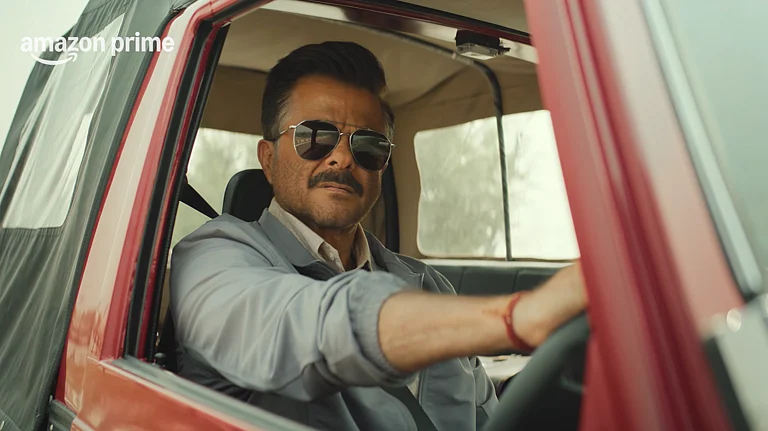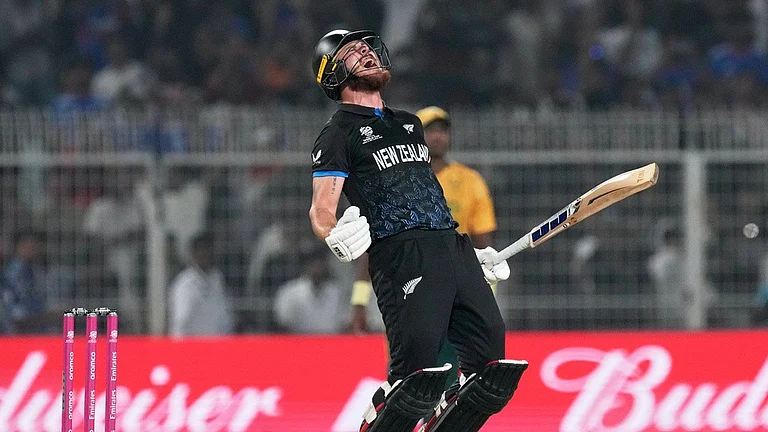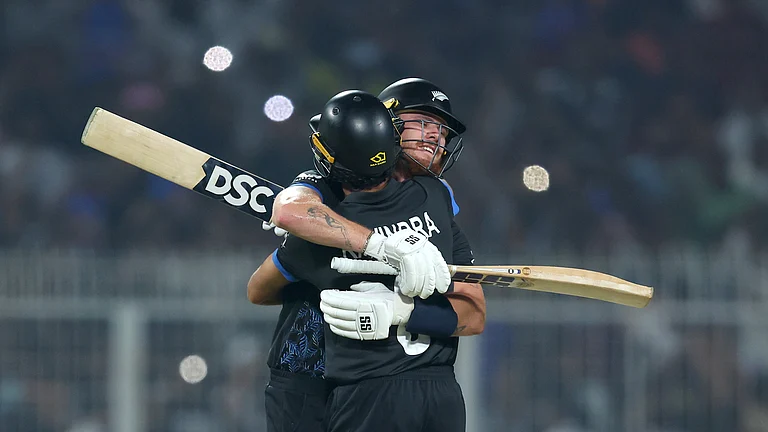As is said, a broken glass can never be put together to its original shape. But Prime Minister Narendra Modi is attempting precisely the same with his idea of “simultaneous elections” to all the three tiers of democratic institutions—Parliament, assembly, village panchayats and urban local bodies—taking place in a synchronised and coordinated fashion. And to make this happen, he has appointed a high-power committee headed by the former President of India, Ram Nath Kovind. This was a “glass broken” in 1967 when Lok Sabha and State Legislative Assembly elections were held together. It was then that the “cycle of synchronised elections got disrupted.” Subsequently, following the 73rd and 74th Amendments to the Constitution in 1992, the massive village panchayats and urban local bodies elections also became part of the democratic process.
Elections for Parliament and state assemblies are directed and controlled by the Election Commission of India (ECI). Panchayats and urban local bodies being state subjects, as per the Constitution, elections to these institutions are directed and controlled by the state election commissions. As of now, India has 543 Parliamentary constituencies, 4,033 state assembly constituencies, 87,942 urban local bodies and 3,146,163 village panchayats for which elections need to be held every five years. Holding them simultaneously in a synchronised and coordinated fashion is an administrative, logistical, security, constitutional and federal nightmare where “angels will fear to tread”!
In the event, one is astounded to see how promptly the ECI has assured the political executive that it would be ready to act “according to legal provisions”, if the “One Nation, One Election” (ONOE) policy of the present government gets implemented. Has this august constitutional body, mandated to be the bulwark of democracy, lost its sense of proportion, independence and apolitical character and just become a camp-follower of whomsoever is wielding political power? If so, it is indeed tragic.
Article 1 of the Constitution says, “India, that is Bharat, shall be a Union of States.” The core objective of the Constitution was to ensure national unity and integrity, while at the same time performing the task of socio-economic reconstruction through democratic means. To achieve this purpose and to meet the special needs of India, the Constitution framers developed a sui generis variation of federation. The Constitution incorporates federal features such as distribution of powers between the Centre and the states, supremacy of the Constitution and an independent judiciary for the resolution of federal issues, but it also has some unitary features such as a single judiciary, common all-India services, single citizenship, common constitution for the Centre and the states.

States can be amalgamated, bifurcated or altered by the Centre. Parliament has the exclusive power to legislate on 97 matters in the Union List. State legislatures have exclusive powers to legislate on 66 matters contained in the State List. The Concurrent List consists of 47 items and both Parliament and state legislatures have the power to make laws on matters contained in this list.
Even if the Constitution of India is not strictly federal, during the last seven decades, it has moved towards the establishment of a federal government with substantial state autonomy. ONOE could destroy this fabric.
When he started this ONOE initiative in 2016, Prime Minister Modi had reportedly stated that it is “not only a subject of debate, but a necessity for India”. Proponents of ONOE argue that “getting out of the ‘permanent election mode’ will be a structural change in mindset that could potentially provide the much-needed space to governments to focus on governance and long-term transformational measures without worrying about impending elections”. The additional reasons given are to avoid huge expenditure in conducting frequent elections and to reduce the influence of black money, caste, religion and communal issues in elections.
These arguments lack sincerity in the Indian context and are being used only to divert attention from the many flaws in our electoral laws and practices, including those relating to safeguards in the use of electronic voting machines or voter verified paper audit trails (EVMs/VVPATs), non-compliance with essential ‘democracy principles’ in the conduct of elections and the use of post-election defections to gain power. To the Prime Minister’s rhetorical question, “Why should the country waste so much money?” the response would be that big money is being spent on several items other than elections like the new Parliament, Bharat Mandapam, luxury aircraft, tall statues and the G-20 jamboree!
The ONOE proposal, as envisaged, has scant regard for the fact that in a federal system, once the respective domains of each unit of democracy—Parliament, state assemblies, village panchayats and urban local bodies—have been constitutionally demarcated and defined, that unit functions autonomously within its domain. The interests, priorities, mores and conventions of each unit are its own and are not subordinate to those of the Union, except where the Constitution itself so mandates. The term of the legislative assembly of a state has nothing to do with the term of the Lok Sabha and depends primarily on the way electoral politics plays out within that state.
Holding of simultaneous elections is a political agenda aimed at a unitary polity, in which the Centre is conflated with ‘national’ and the states treated as its subordinates, with their individual political fortunes deferring to those of the Centre. This is an assault on the fundamental principle of federalism in which each unit of democracy and governance is expected to function with relative autonomy and take its own decisions, whether it is the timing of elections, the framing of its laws and/or formulating its own policies with respect to subjects in the State List/Concurrent List.
What is worrying is not just the disregard for the federal character of the country, which is implicit in the ONOE idea, but the barely concealed contempt for electoral democracy itself. The dangerous assumption here is that the need to periodically seek the mandate of the people is an unnecessary burden which comes in the way of efficiency. Governance, here, is viewed as something superior to and outside the practice of democracy and as the preserve of the administrative and political executive which controls it. The implication that the people—the voters—have nothing to do with it, is repugnant to the basic principle of democracy.
India is a Union of States and the administrative convenience of the Central Government or the ECI cannot dictate the political processes of a state. Doing so could decimate whatever is left of the federal nature of the country and alter the basic structure of the Constitution, as laid down by the Supreme Court in the Kesavananda Bharati (1973) and the S R Bommai (1994) cases. In practice, holding simultaneous assembly elections with that of Parliament in May/June 2024 would entail the curtailment of the tenure of 21 state assemblies ranging from 47 months in Karnataka to five months in Haryana/Maharashtra. Will these states, except a few under ‘double-engine’ governments, ever allow this? Doing this with coercion could lead to the collapse of India’s federal governance with dangerous consequences to the unity and integrity of the country.
The question is also as to whether ONOE is desirable at all. In 2017, the Law Commission conducted consultations with political parties on the feasibility of holding simultaneous Lok Sabha and state elections. The sharpest opposition then came from the South, particularly from the DMK in Tamil Nadu, and MK Stalin—the present chief minister—in a communication to the Commission called it a “complete misadventure that will decimate the federal structure” of the country. It went on to say that even though Parliament is empowered to amend the Constitution, it cannot alter the basic features of the Constitution like federalism. The letter also took a dig at the examples cited by the Law Commission in favour of adopting ONOE: “The combined population of Sweden (1 crore), Belgium (1.1 crore) and South Africa (5.5 crore) is less than that of Tamil Nadu itself. Therefore, any comparison of these countries with that of our nation (130 crore) is logically fallacious, completely misleading and unhelpful to the present discourse.”
Despite Modi’s best efforts, ONOE did not happen during the 2019 Lok Sabha election. Why then is he reviving it for the Lok Sabha-2024 election which is just months away? One theory doing the rounds is that the formation of the opposition INDIA alliance has sent jitters down the spine of the ruling establishment resulting in this knee-jerk reaction.
Regional parties, which are in power in many states, are mortally scared by the ONOE idea, which they see as an existential threat because India could transform from a federal to a unitary state. What is worse, ONOE is not possible in a parliamentary democracy where governments can fall and mid-term elections are needed in states or at the Centre. It is possible only in a presidential form of government, which seems to be the hidden agenda. Is this not a nightmare to India’s federal polity? The jury is still out…
(Views expressed are personal)
(This appeared in the print as 'A Nightmare For India’s Federal Polity')
M G Devasahayam is a former Army and IAS officer. He is presently coordinator, citizens’ commission on elections

















